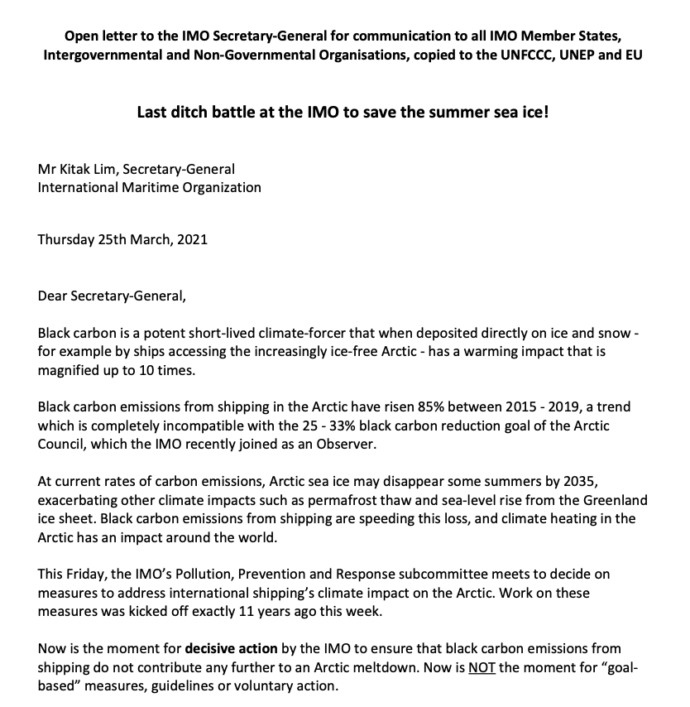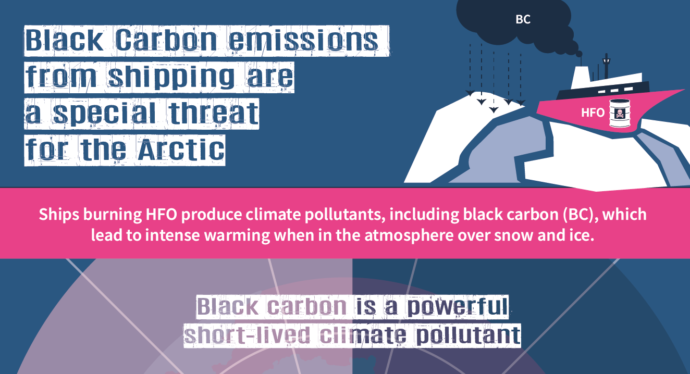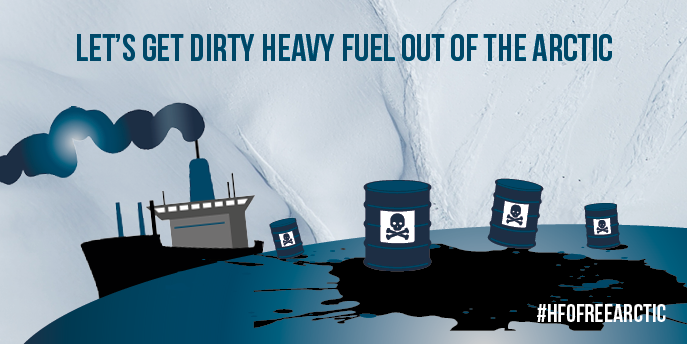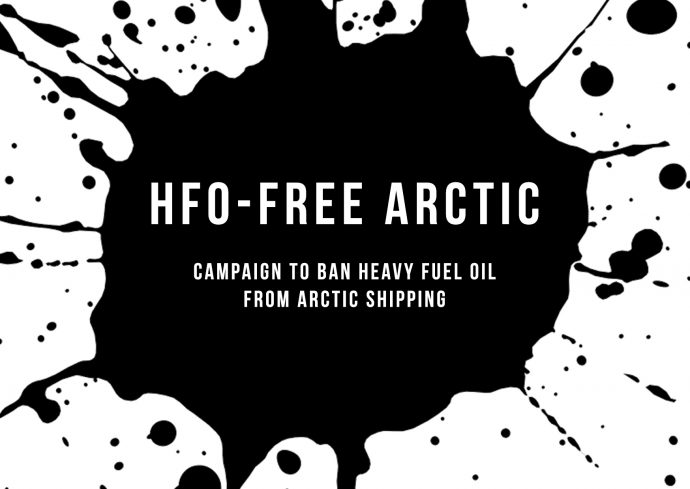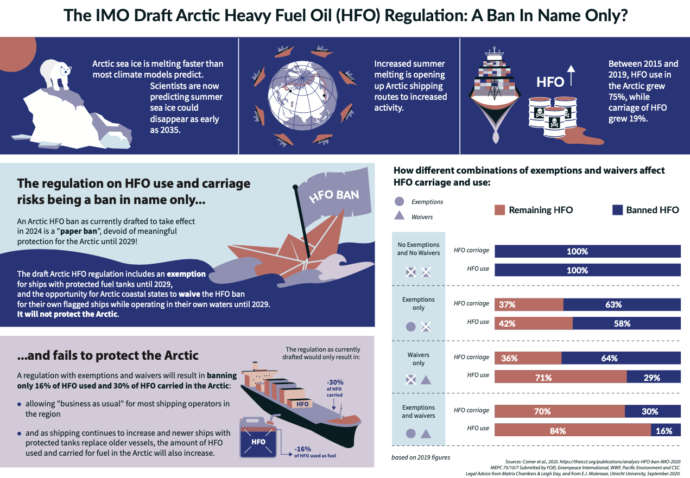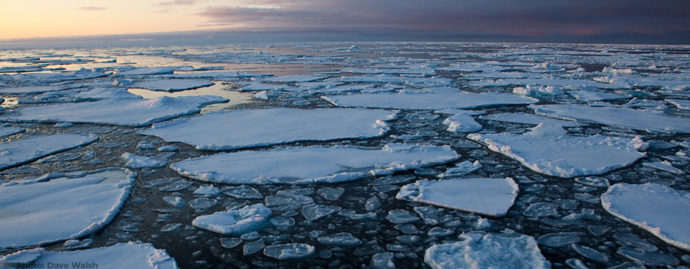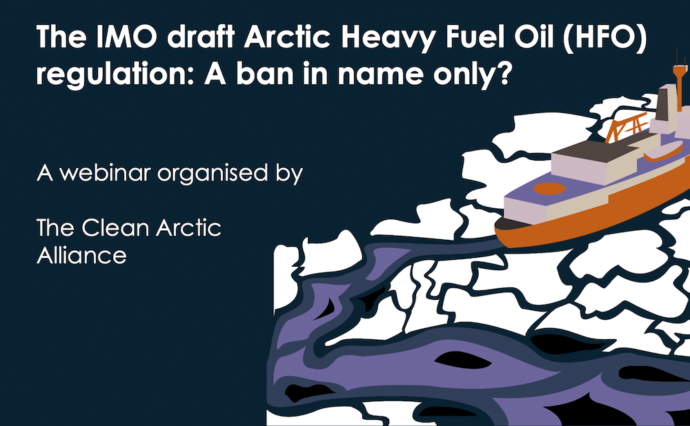Open Letter: International NGOs Urge Global Shipping Chief to Arrest Arctic Meltdown
International NGOs have sent an urgent letter to International Maritime Organization (IMO) Secretary-General, Mr Kitak Lim, calling on him to take action to address international shipping’s climate impact, ahead of Friday’s crucial decision on IMO measures on black carbon emissions in the Arctic.

